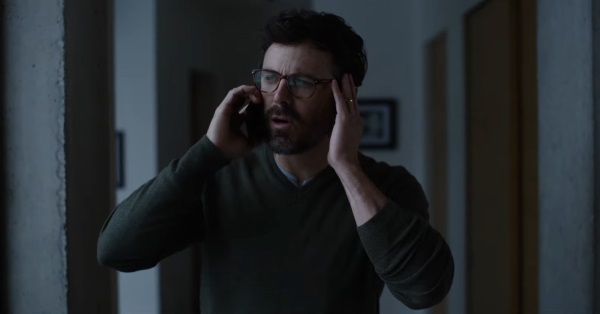Casey Affleck anchors a thriller in Every Breath You Take that utilizes the iconic The Police song about obsession as its moniker, but never fully does the legwork to earn that famous track’s rich history.
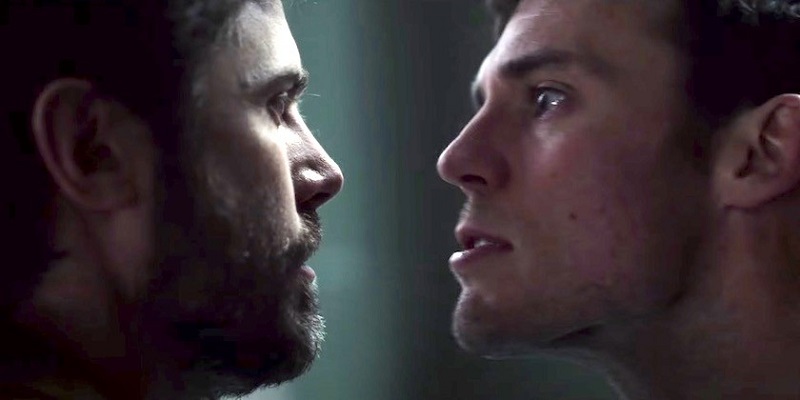
Affleck is Philip, a Pacific Northwest psychiatrist—with a thriving practice and professorship—who does something outside the box with one of his patients, Daphne (Emily Alyn Lind), that results in extraordinary results. The young woman was on heavy psychiatric meds and comes from a long linage of family members who have taken their own life. No matter what Philip tried to do, he couldn’t get through to her.
In the film’s opening moments, Philip and his wife, Grace, suffer the unspeakable, their young son dies in a car crash that found Grace at the wheel. Philip shares that with Daphne, along with a bounty of things he “hasn’t even told his wife” in an effort to break down the wall that his patient has erected around her. It worked. It’s a breakthrough that teeters on the edges of being unethical, yet his boss/dear friend Dr. Vanessa Fanning (Veronica Ferres) features him in a departmental lecture for its success.
It’s only when Daphne passes away that Philip’s unusual methods are exposed and come under scrutiny. Her death also brings her brother James (Sam Claflin) to town, who is riddled with grief. Underneath the surface of Claflin’s character lies an individual with nefarious motives, whose mere existence brings peril to Grace and Philip’s life.
With thrillers and like-minded films, a certain amount of suspension of disbelief is required—some demand it more than others. When it comes to Every Breath You Take, there is more than the usual amount of this element. For us, the viewers, what James is up to seems to be telegraphed a mile away. He’s going to zero in on the women in Philip’s life, his wife and daughter, as he “makes him pay” for failing his sister.
There’s a lot of balls in the air that has to land exactly right for this concept to work at all. Grace has to be open to having an affair on a husband who has blamed her for his son’s death for several years now. Their daughter Lucy (India Eisley) must also be open to advances from James. Given the fact that the latter recently got tossed from boarding school for doing cocaine, one senses that this teenage girl will be attracted to this highly attractive “bad boy.” Sadly, writer David Murray doesn’t seem to give girls of a certain age too much credit.
Granted, her attraction to him also was broadcast (at least somewhat subtly) from the moment she answered the door when he knocked seeking to return a book to Philip that his sister had borrowed. He ends up staying for dinner, because why not? What better way for this worm to slither into this family, who has already suffered unspeakable loss, and make all their collective lives miserable—at least more dismal than they already are at the moment.
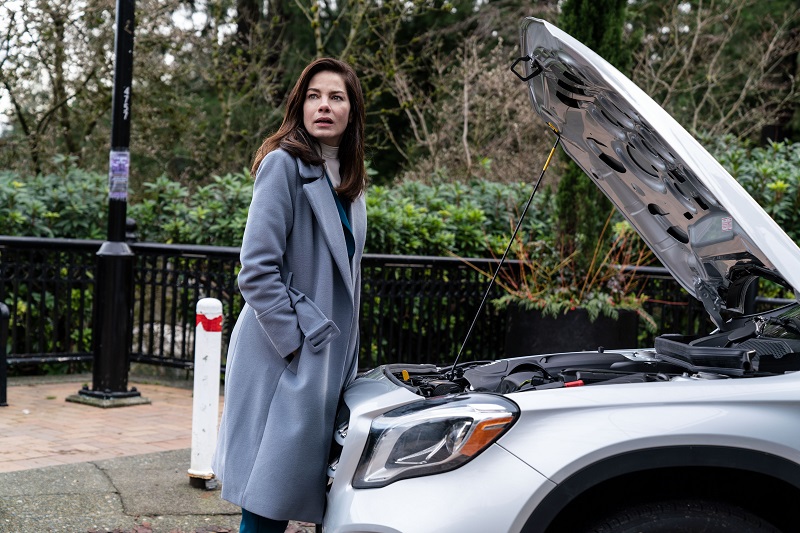
Of course, Grace is a real estate agent and—you guessed it—James needs someone to help him sell his sister’s home, so there’s that in for the sociopath who is just charming enough for the viewer to buy all of this, with one enormous grain of salt.
When Philip’s patients start leaving him like rats leaving a sinking ship and the ethics board has received countless complaints about a previously celebrated psychiatrist, the eye rolls from the viewer can commence. This could be an effective means of stripping a man of every last thing he holds dear—his family, his profession—if it just weren’t so damn obvious and something that we saw coming the moment James knocked on that door the very first time.
Every Breath You Take walks and talks like a thrill-a-minute thriller. Yet, it never comes close to earning its place among the films in this subgenre of cinema that have become legendary (Fatal Attraction, Collateral, and Memento… to name just a few) due to the pedantic storyline, and the anti-twists and turns strewed throughout Murray’s script. His screenplay lacks any kind of originality or forward-thinking. It’s not that it’s lazy screenwriting. Instead, the storyteller uses tropes and classic milieu mechanisms that take a decent enough premise and sends it barreling a well-traveled road of mediocracy.
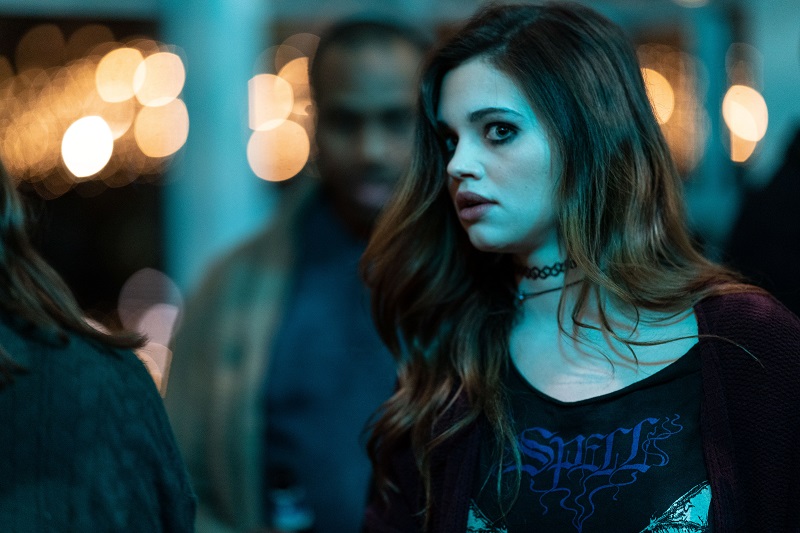
The film is also a perfect example of a cast raising the bar on a project that has no business being as entertaining as it is, due to them inhaling typical film fare and exhaling something that was never on the page. Affleck, Claflin, Monaghan, and Eisley make director Vaughn Stein look like a genius.
Monaghan plays the heck out of her internally wounded wife and mother with a vulnerability that is palpable. She earns her compensation big time on this film! Somehow, the actress takes an “as it’s written” character marinated in stereotype and delivers an evolved woman who is susceptible to missteps in her life and her marriage.
Eisley, also given an archetype on the page, finds the humanity in Lucy that is at times, even a bit haunting. After all, she lost her little brother, and it’s her parents who are as frigid to each other as the Soviets and Americans were during the Cold War. Sadly, James’ moving on Lucy is kind of creepy—no matter the backstory. But as the young actress plays it, somehow… it feels rooted in raw reality.
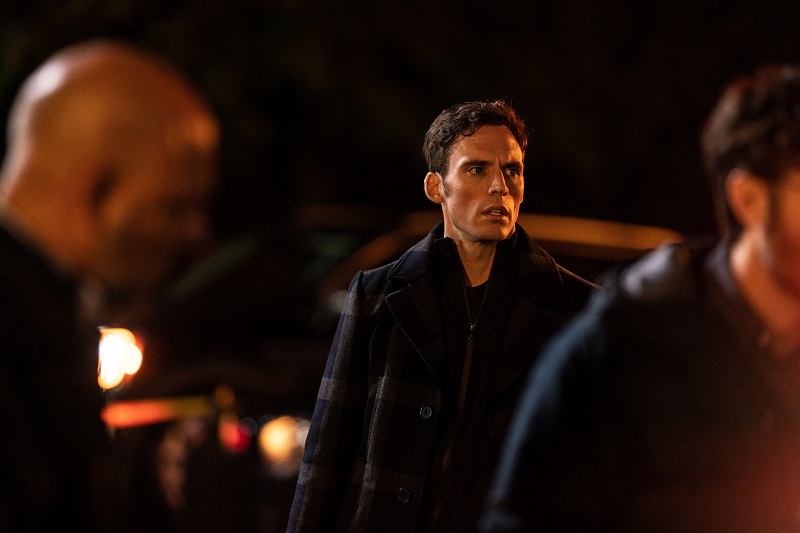
Since making an announcement on The Hunger Games, Claflin has been a talent in search of a vehicle to make him a full-fledged star. He dazzled in Me Before You opposite Emilia Clarke and was equally stellar with Shailene Woodley in Adrift. Here, he must thread a difficult needle. Essentially, the English actor is tasked with portraying a multi-dimensional character who is different things to different people. Even if it’s clumsily written in Murray’s script, Claflin’s gifts keep it from completely going off the rails.
Then there’s Affleck. After winning the Oscar for Best Actor in 2017 for Manchester by the Sea, he has taken smaller projects and wowed us with each and every one of them—from Our Friend earlier this year to The Old Man and the Gun opposite Robert Redford in 2018. In Every Breath You Take; he has embodied a character in Philip who for most of the film seems lost.
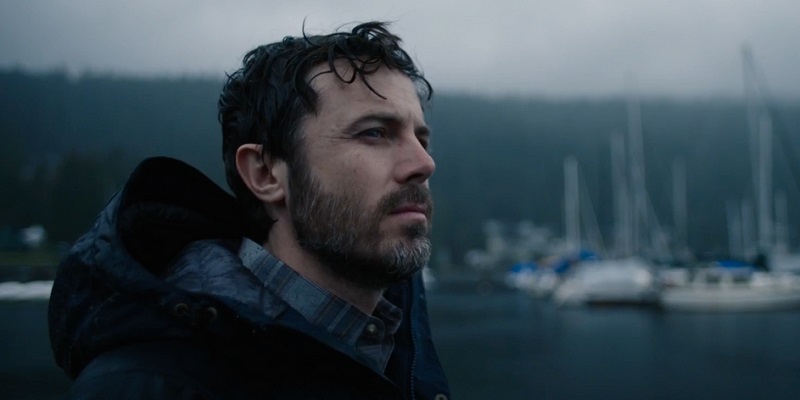
This is another trope that Murray has used that thanks to the actor, works. Philip is a classic example of a man pushed to the edge who finds himself amongst the chaos. In the hands of a lesser actor than Affleck, it would never work as written. But thanks to Affleck, Every Breath You Take is at least a serviceable lesson in a family weathering a storm and coming out the other side stronger than when the hurricane hit.
Grade: C

